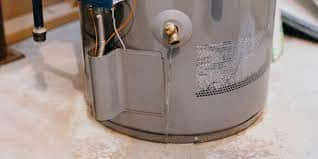Introduction
Water heater leaking can lead to significant damage if not addressed promptly. Understanding the causes, signs, and preventive measures can save you from costly repairs and potential hazards. Let’s delve into this common household issue.
Common Causes
Corrosion
Corrosion is a primary culprit behind water heater leaks. Over time, the tank’s metal can deteriorate due to chemical reactions with water, resulting in cracks and holes.
High Water Pressure
Excessive water pressure can strain the water heater, causing fittings to loosen and leading to leaks. Monitoring and regulating water pressure can prevent this issue.
Loose Fittings
Loose connections, such as valves and pipes, can cause water to escape from the heater. Inspecting and tightening fittings regularly can mitigate leaks.
Signs of Leakage
Puddles on the Floor
Visible puddles around the water heater are an obvious sign of leakage. Check for wet spots or standing water regularly.
Rusty Water
Discolored or rusty water coming from faucets indicates corrosion inside the tank, signaling potential leaks.
Unusual Noises
Gurgling or popping sounds from the water heater may indicate water escaping through cracks or holes.
Prevention Tips
Regular Maintenance
Schedule annual inspections and maintenance to detect and address potential issues before they escalate.
Monitoring Water Pressure
Install a pressure gauge and adjust water pressure within the recommended range to prevent strain on the heater.
Checking for Loose Connections
Inspect fittings, valves, and pipes for any signs of looseness or corrosion, tightening or replacing as needed.
DIY Fixes
Tightening Connections
Use a wrench to secure loose fittings and connections to stop minor leaks.
Flushing the Tank
Periodically flushing the tank removes sediment buildup, reducing the risk of corrosion and leaks.
Replacing Corroded Parts
Replace corroded or damaged components, such as anode rods or heating elements, to prevent leaks.
When to Call a Pro
Extensive Corrosion
If corrosion has compromised the integrity of the tank, professional intervention is necessary.
Leaks Persist After DIY Attempts
If leaks persist despite DIY efforts, it’s time to seek expert assistance to prevent further damage.
No Hot Water Despite Functioning
A leaking water heater may affect its performance, leading to insufficient hot water. A professional assessment is warranted.
Cost of Repairs
Repair vs. Replacement Cost
Compare the cost of repairing the water heater to replacing it entirely, considering factors like age and extent of damage.
Factors Affecting Repair Cost
Repair costs vary based on factors such as the severity of the leak, type of heater, and required parts.
Average Repair Expenses
On average, repairing a water heater can cost anywhere from $150 to $800, depending on the complexity of the issue.
Impact on Home
Water Damage
Unchecked leaks can cause water damage to floors, walls, and belongings, leading to costly repairs.
Mold Growth
Moisture from leaks creates an ideal environment for mold growth, posing health risks and requiring remediation.
Decreased Energy Efficiency
A leaking water heater may operate less efficiently, resulting in higher energy bills. Prompt repairs can restore efficiency.
Insurance Coverage
Typical Coverage
Homeowners insurance typically covers water damage caused by sudden and accidental leaks.
Exclusions
Some policies may exclude coverage for gradual leaks or neglect-related damage. Review your policy for clarity.
Filing a Claim
If your water heater leak is covered, document the damage and contact your insurance provider to file a claim promptly.
FAQs
- How do I locate the source of a leak?
- Can a leaking water heater explode?
- Should I turn off the water heater if it’s leaking?
- How often should I inspect my water heater for leaks?
- Is it safe to use a leaking water heater?
- How long does it take to repair a leaking water heater?
Conclusion: Water heater leaks are not only inconvenient but also potentially damaging to your home and belongings. By understanding the causes, signs, and preventive measures outlined above, you can effectively manage and mitigate the risks associated with water heater leaks.





